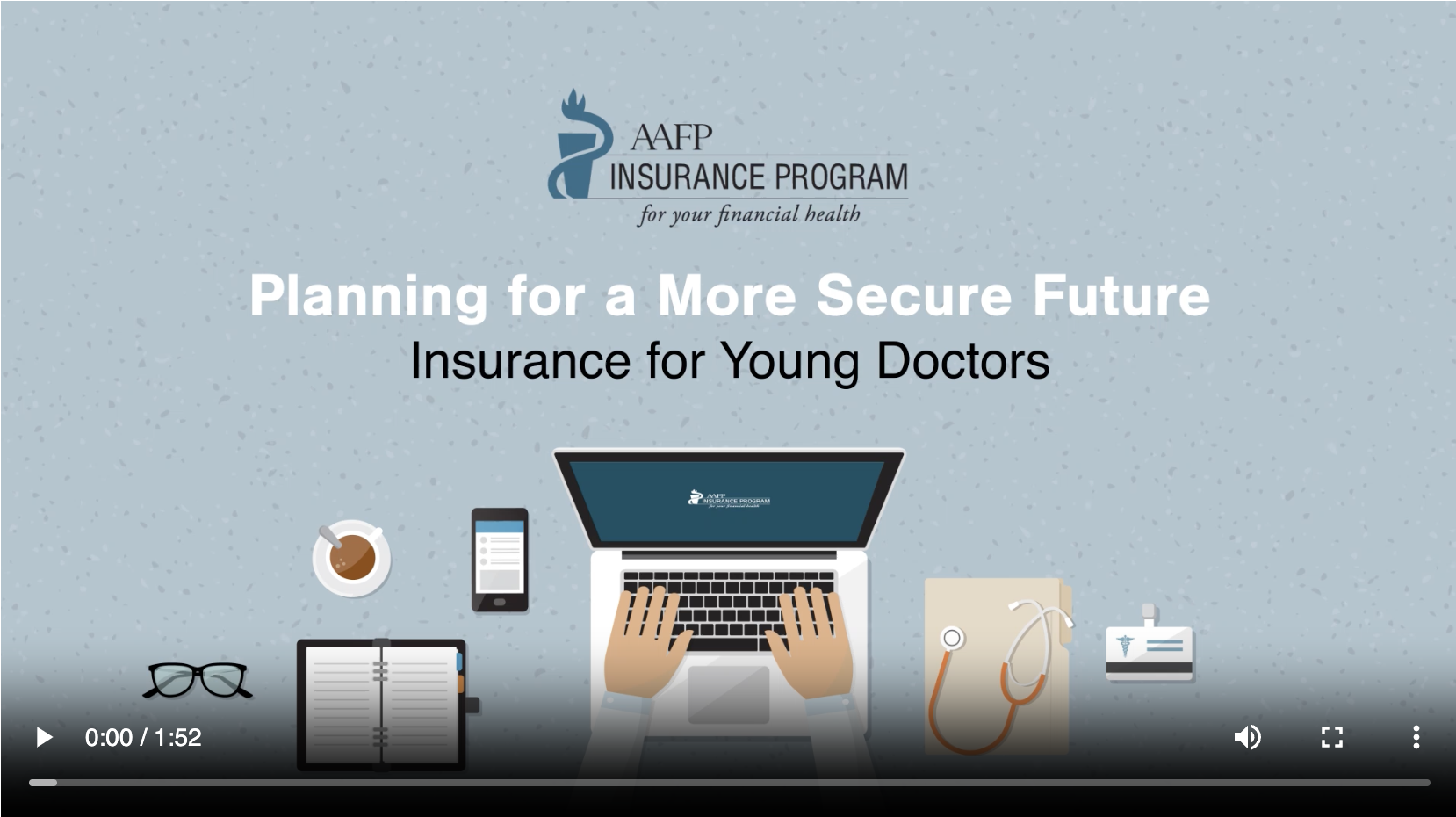
In our financial discussions, we often talk about safeguards to help physicians protect their income. We share strategies for using insurance products in your retirement and family financial planning.
While we present a lot of ideas, we always encourage you to discuss them with your financial advisor. But how do you select a financial advisor? It’s an important question because not every financial professional is a sound choice. Even if someone recommends an advisor who has worked well for them, it does not mean that advisor is right for you.
Physicians tend to have some special considerations:
- Because of your many years of training, you typically start your career carrying more debt than those in other professions.
- Many doctors are either self-employed or run a small limited liability partnership.
- In general, you have more income potential than many professionals, but you also have more to lose should an accident or illness sideline your career.
That’s why choosing your financial advisor may be one of the more important decisions that you make. So here are some steps you can take to help you select the right financial advisor for your needs.
Start Early in Your Career
Young physicians, even though they’re just starting out and don’t have a lot of income to invest, can still benefit from good financial advice. So don’t put off until tomorrow … well you know the rest.
You want to find a good, reliable advisor who wants to work and grow with you. In addition to providing long-term planning, an advisor can help you develop good habits. They can recommend ways to manage your money better, pay down debt, select the most appropriate insurance protection and, thus, put you on a path toward improved financial wellness.
An added benefit of starting early is you have time to evaluate the results. And if you don’t like the results, you can learn from your experience and make a better choice of advisor going forward.
Ask Questions Up Front
When selecting an advisor, conduct a thorough interview. Here are some areas to explore:
What services are included?
How do they envision adding value to your life and financial wellness? You can expect their responses to include maximizing your net worth, simplifying your financial decisions and pointing out potential risks and issues you may not have considered. Because no one is an expert in everything, find out if they have outside resources at their disposal. Perhaps they can even provide introductions to other professionals, including an accountant and/or tax attorney, when you need one.
Ask about their work with doctors
Do they have experience working with physicians? What’s their track record with physicians? And how many doctors are they working with currently? You really want an advisor that understands the special needs of physicians.
Find out about their education and training
You need to know and understand what certifications they have. Equally important, are they keeping current in their continuing education credits? Here are four of the top certifications:
- CFP (Certified Financial Planner)—The Certified Financial Planner Board of Standards requires a minimum of 1000 hours of financial planning study followed by a comprehensive exam and three years of professional financial planning experience.
- PFS (Personal Financial Specialist)—The American Institute of Certified Public Accountants issues its credential to CPAs who have education and at least three years of experience in retirement and estate planning, investing and insurance as it applies to personal financial planning.
- CFA (Chartered Financial Analyst)—The CFA Institute requires a bachelor’s degree (or equivalent) and 48 months of on-the-job experience in investment. The exams cover accounting, math, economics, ethics and finance.
- RFP (Registered Financial Planner)—The Registered Financial Planners Institute requires two years of financial experience, 120 hours of education approved for financial planners, a rigorous examination and 20 hours of continuing education every three years.
Get clarification on the fee structure
Who pays them? How much? And what’s included? In the first place, you don’t want any billing surprises, and second, you need to know what you’re getting for your money. But more important, you need to determine if the advisor is an independent and relying on fees you pay or are they dependent on racking up commissions.
Discuss what it will be like working with the advisor
What’s their preferred mode of communication? Will you talk on the phone? Meet face to face? Or rely on email? And how often can you expect to hear from them? Can you check in with your advisor any time and call with questions as they crop up? Are there extra fees for such consultations? Can you expect an annual review and planning session?
Require a Third-Party Custodianship of Investment Funds
You want an advisor that uses a third-party custodianship of investment funds. We’re not suggesting that every financial advisor is looking to rip you off. But other than the fees you pay, your financial advisor should not have physical contact or access to your money and assets. A third-party custodian is an intermediary between your advisor and yourself as client. While this is largely for your protection, it also helps to indemnify the advisor.
With a third-party custodian, your advisor will never handle your money, withdraw funds or cut checks (even to you). It’s the third party’s job to process all transactions as assets are bought and sold, collect the dividend and interest payments and make any distributions of funds. They also provide monthly statements on your holdings.
Because it’s a separate firm or financial institution, make sure you know which custodian your advisor is using. You also should expect a service agreement covering the services provided.
Seek a Second Opinion…
Or even a third. Just as you expect patients to get more than one opinion on a difficult diagnosis or procedure, you should do the same for your financial health. Financial advisors expect it. Set consultations with two or three advisors to discuss your financial needs and planning.
And one more thing.
Just as it’s important that your patients feel comfortable and confident in you, you need to feel the same way about your relationship with your financial advisor. In part, it’s a matter of trust, knowing you’re placing the financial security for yourself and your family in good hands. Doing so helps to keep you focused on your practice and not worrying about whether or not your financial advisor is operating in your best interests.
You don’t need to be social friends or golfing buddies, but you do want to build a cordial professional relationship. You want to take your advisor’s calls with a smile. And you need to feel comfortable calling when you have a question or problem.
Your financial security is important now, whether you’re just getting started or approaching retirement. Make sure you’re in good hands.




